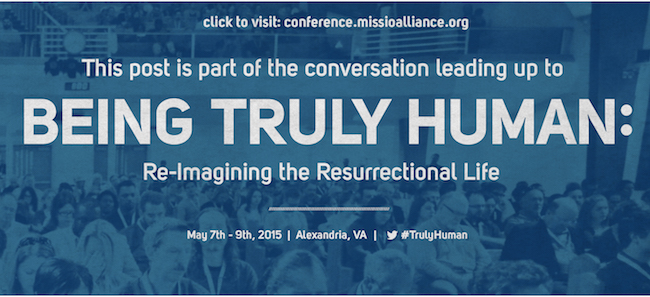The Sunday Morning Post, 2.8.15
Every Sunday morning, we’ll be posting articles and links that are saying something important about church, culture, and mission. Here’s what resonated with us this week on the web:
Church & Theology
Ben Sternke writes about when to stick it out and when to try something else, taking a cue from the Apostle Paul:
He’s very pragmatic about it. He seems to be look for what’s working.
It’s more than that, though. He’s not really looking for what is working as much as he’s watching for Who is working. He’s looking for evidence of the Spirit’s work as he preaches the gospel. When he sees it, he stays and continues to work. When he doesn’t see it, he moves on to a new city (or next door!).
Tim Catchim follows an interesting line of thought at the V3 Movement blog – how might Waffle House organize a church?
I was driving back form Huntsville, AL recently, and I was doing what I normally do on long trips…doodling in my little black book, developing diagrams and reviewing previous notes. I turned to my wife as she was driving and shared with her the matrix I was working on in relation to the gathered and scattered church.
The more I shared the terms gathered and scattered, the more we began to drift into “Waffle House terminology.”
Neil Cole considers whether “APES” are an endangered species in the church – and how this may have transpired:
So where did the APEs go if they are not found in churches? The APEs have likely migrated to other places in the kingdom outside of the traditional local church or denominational structure. Many of those who have grown and matured in their gifts despite the lack of support in most churches have eventually jumped ship. It is not as though Jesus stopped giving these gifts, it is more likely that we have not accepted them in our church culture.
News & Views
Jonathan Merritt interviews Donald Miller about his new book on intimacy and relationships:
RNS: After having written “Scary Close” and thinking about these issues, do you believe fear of intimacy is especially endemic to Millennials?
DM: No, I think its endemic to human beings. Intimacy is frightening because there’s so much at stake. Like it or not, other people have the ability to make us feel great about ourselves or terrible about ourselves, so it makes sense that we guard our hearts. At the same time, letting safe people know who we are is how we find intimacy, so it’s important to get out there and fight for a small community we can trust. I don’t think it’s just Millennials. I think it’s all of us. Connection is what we want more than anything else in the world. It’s what life is about.
Benjamin Corey offers ten suggestions for being a better peacemaker online and making the Internet a better place:
1. Remember that avatars aren’t just avatars- but are real people with a real story.
It’s easy to lose sight of an individual’s humanity on the internet, but remember, this is a real person with a real story– and you don’t know their story. Try to remember that you’re not really talking to a cartoon avatar, but a real, live, human being who has their own story that led up to their nasty comment.
Christian Today reports that a conservative Anglican diocese will keep $500 million in church assets after splitting with the Episcopal denomination:
She wrote in her decision this week that the conservative diocese and its parishes are “the owners of their real, personal and intellectual property” and that the national church has no legal interest in the properties.
The diocese and its 36 parishes, headed by Bishop Mark Lawrence, split from TEC in 2012 over theological issues including the long-running controversy over homosexual relationships, ordinations and consecrations.
Partners & Resources
Gannon Sims wrote at the Fresh Expressions US blog about new partnerships.
The Acton Institute offered this article about C.S. Lewis and the economy of wisdom.
We posted the bios of all of the Presenters for our #TrulyHuman Gathering in May, and we couldn’t be more excited about this lineup!
On The Missio Blog
On the blog this week, we continued our ongoing series on the topic of #TrulyHuman:
Reflecting With Bonhoeffer: Learning To Be #TrulyHuman From The Son Of God, by Nijay Gupta.
Middle East, The Church, And The #TrulyHuman Cost Of Peacemaking: 7 Lessons, by Jon Huckins.
Becoming #TrulyHuman: Embodiment Is Not Enough (Part 2), by Seth Richardson.
Subhuman Or #TrulyHuman? Finding Healing For The Sickness And Death Of Sin, by Derek Vreeland.

